11 things to look for when buying a washing machine
If you’re buying a new washing machine, you should really read this first.

Picking out a new washing machine can be quite a daunting task. As well as the basic specifications on offer, such as capacity, settings and front load vs top load, there’s an endless supply of special features to consider too. For instance, some washing machines offer smart connectivity, so you can monitor and control the appliance remotely. Others feature auto-dosing, so you don’t have to measure out the detergent for each cycle. If you’re willing to pay enough, some washing machines will even recommend settings for specific stains. Needless to say, there’s a lot to think about when it comes to choosing a washing machine.
To help out, we’ve created this guide on 11 things to look for when buying a washing machine. We will start with an in-depth look at the basic specifications on offer as well as the advantages to both front load and top load designs. Areas such as noise and electricity consumption will also be covered. Plus, we will branch out into some of the special features worth your consideration. By the time you’re finished reading, you will know exactly what you need to get the best washing machine.
Want to take better care of your washing machine? I test appliances for a living and here are my top washing machine tips, and here's how to fix a shaky washing machine.
1. Front load or top load
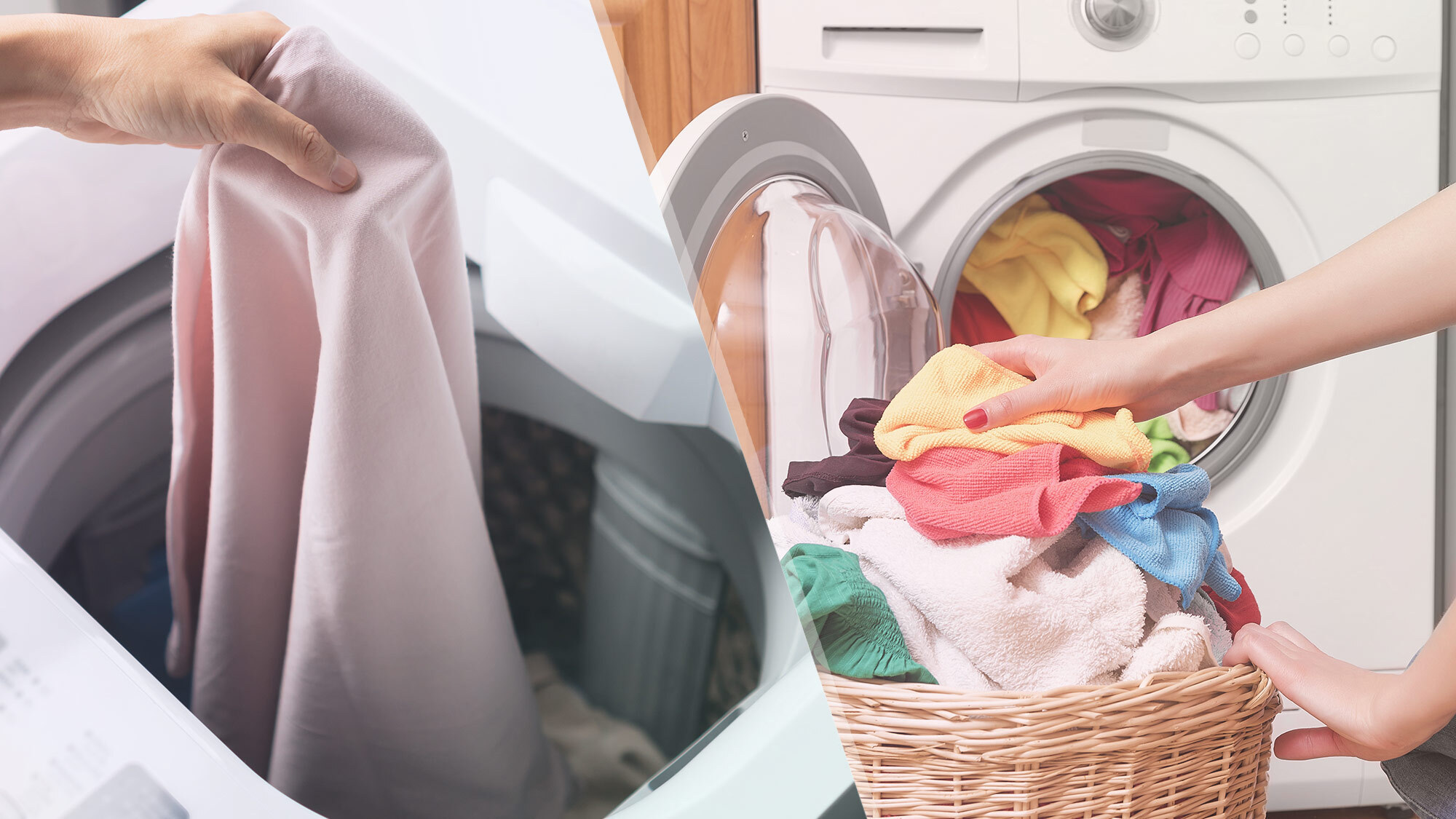
This is the first thing you really need to decide before shopping for a new washing machine. Washing machines are available in front load and top load designs and there are pros and cons to each. While each type of washer achieves the same outcome, they actually suit entirely different audiences.
Front load washers generally offer better cleaning results, plus they can be more economical on space if they’re stackable. The tumbling action as it cleans is actually gentler on the clothes as well. However, top load washers are more comfortable and convenient to load because you don’t have to bend down. The cycles tend to be faster as well, plus you can pre-soak with this design which is useful. Whichever you choose will depend on your specific preferences. Check out our guide on front load vs top load washer for more info.
2. Capacity
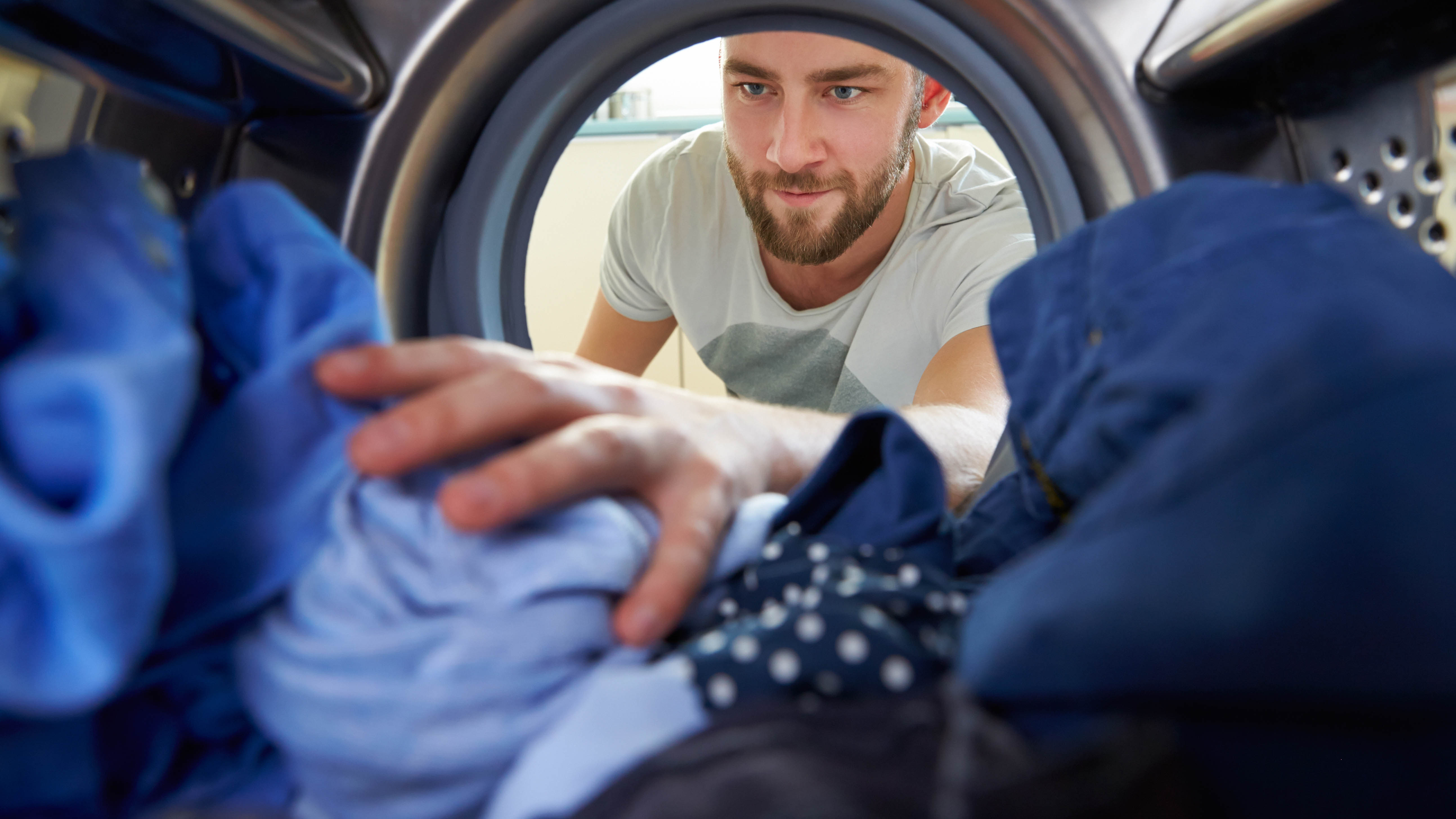
Capacity is another important factor which must be taken into account. The more you need to wash, or the bigger family you have, the greater capacity you will need. Capacity literally equates to the size of the drum, and ranges anywhere from 1.0 cubic feet (pedestal washers) to 6.0 cubic feet.
Bear in mind that while you can always run more washes to keep up with your laundry load, this will inevitably cost more in terms of water and electricity usage. It won't help your washer last longer either, so you’re better off getting one with the ideal capacity to start with. For guidance, a medium-capacity washer generally ranges from 3.5 to 4.4 cubic feet, while a large design is 4.5 plus. If you’re unsure, take a look at a selection of models in person to compare drum sizes before you buy.
Sign up to get the BEST of Tom's Guide direct to your inbox.
Get instant access to breaking news, the hottest reviews, great deals and helpful tips.
Overloading is one of the 7 ways you’re damaging your washing machine without knowing it, so make sure you get the capacity right.
3. Spin speed
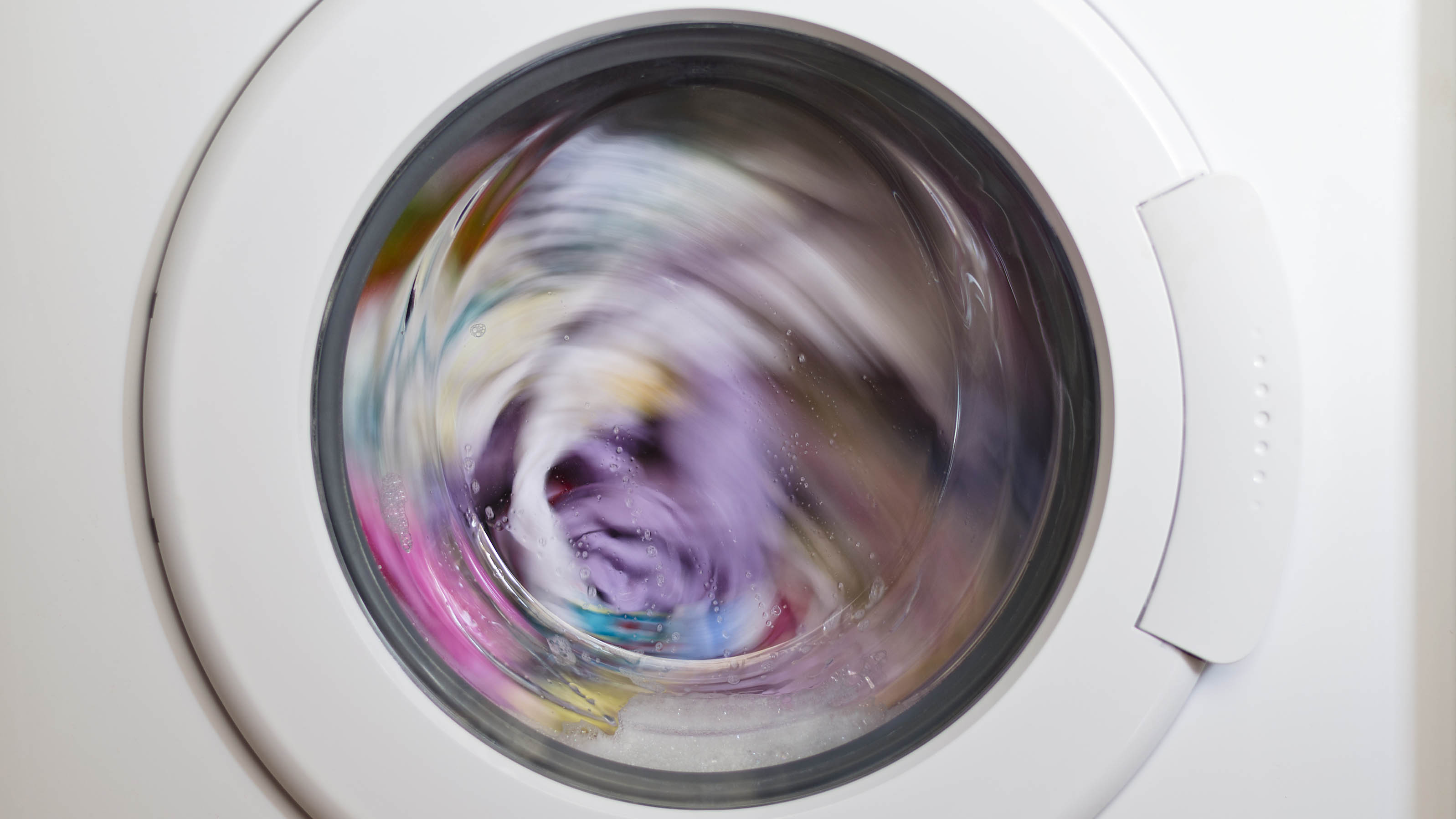
Spin speed isn’t the first thing you think to check when buying a washing machine, but it’s still important. High spin speeds will effectively remove more water from your clothes at the end of the cycle, which will help them dry faster. Conversely, lower spin speeds are ideal for delicate fabrics.
Make sure you have a good range of spin speeds to choose from, with a maximum of between 1200 to 1600 RPM.
If your spin cycle won't run, here's 7 reasons your washing machine won’t spin — and how to fix them.
4. Electricity consumption
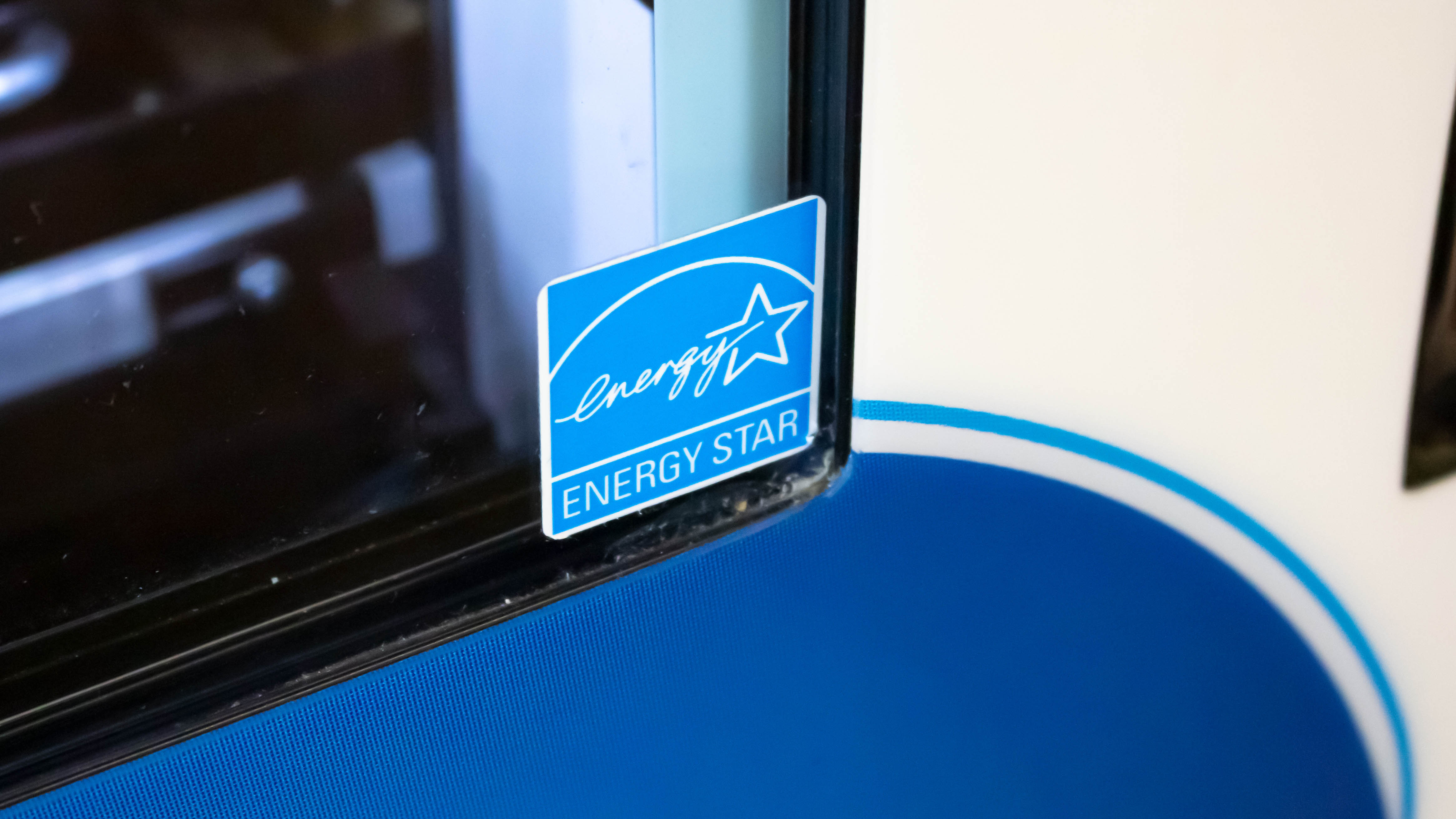
Electricity consumption is an essential factor to consider, unless you want to run up high energy bills. Check out and compare the estimated annual electricity use and look out for models which are Energy Star Certified as well.
Anything which carries the Energy Star rating is generally 10-20% more energy efficient than those without. Finding a washing machine which is more energy-efficient will essentially save you money in the long run and is better for the environment too.
5. Noise
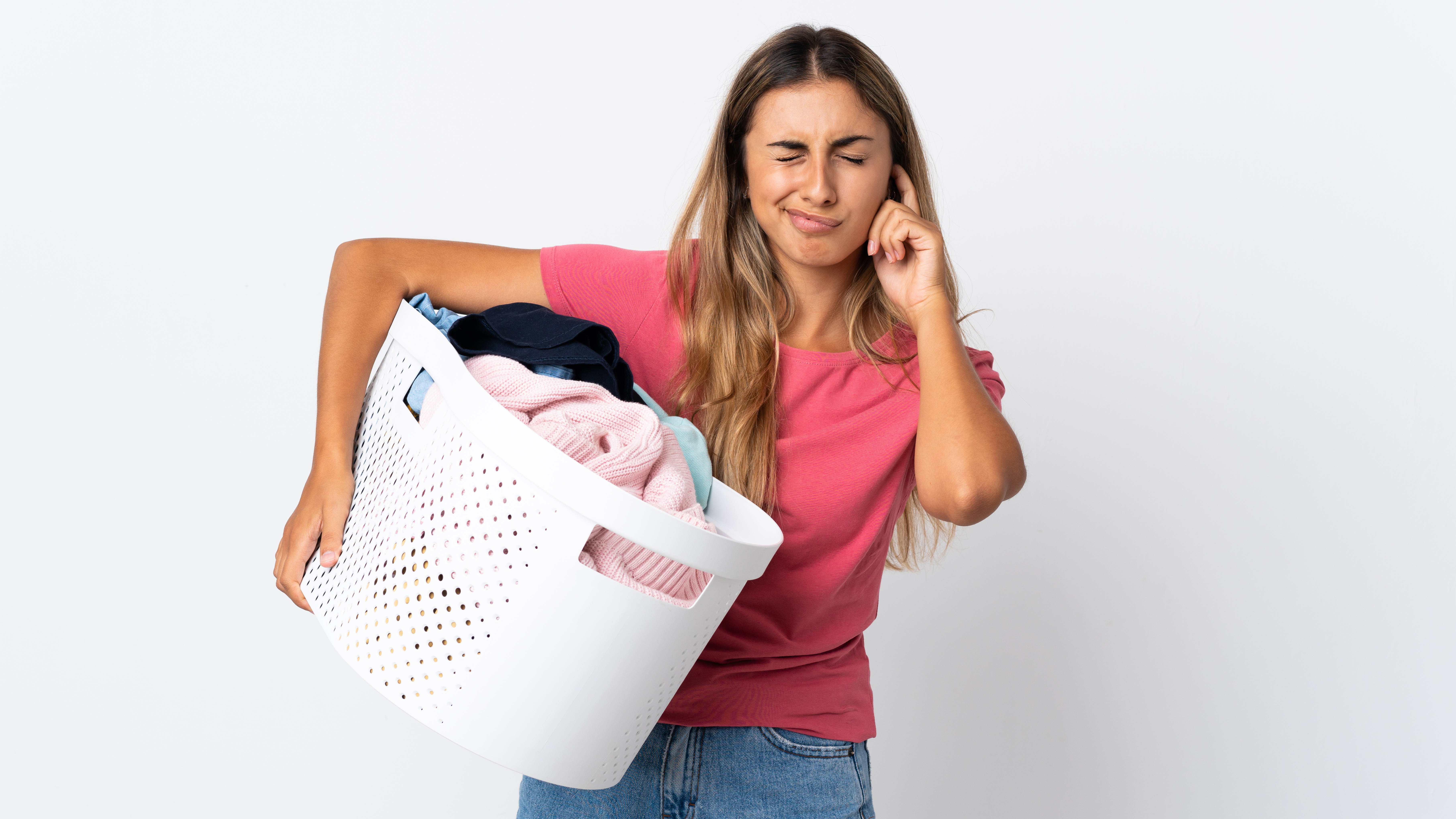
Unless you want your washing machine disrupting everyday conversation, noise is another spec to check. Washing machines can build up a lot of noise, particularly when they’re spinning in the final stages of the cycle. As a result, you're restricted on when to run it — you don’t want it making a racket while you have guests over.
However, some washing machines are so quiet that they can be run in the early morning without waking the household, which may well be the cheapest time to do your laundry. Look out for designs with ‘quiet technology’ as well as vibration reduction and noise ratings which you can compare.
If your washing machine is making a lot of noise because it shakes, it shouldn’t be doing that. Check out our guide on how to fix a shaky washing machine if that’s the case.
6. Settings available
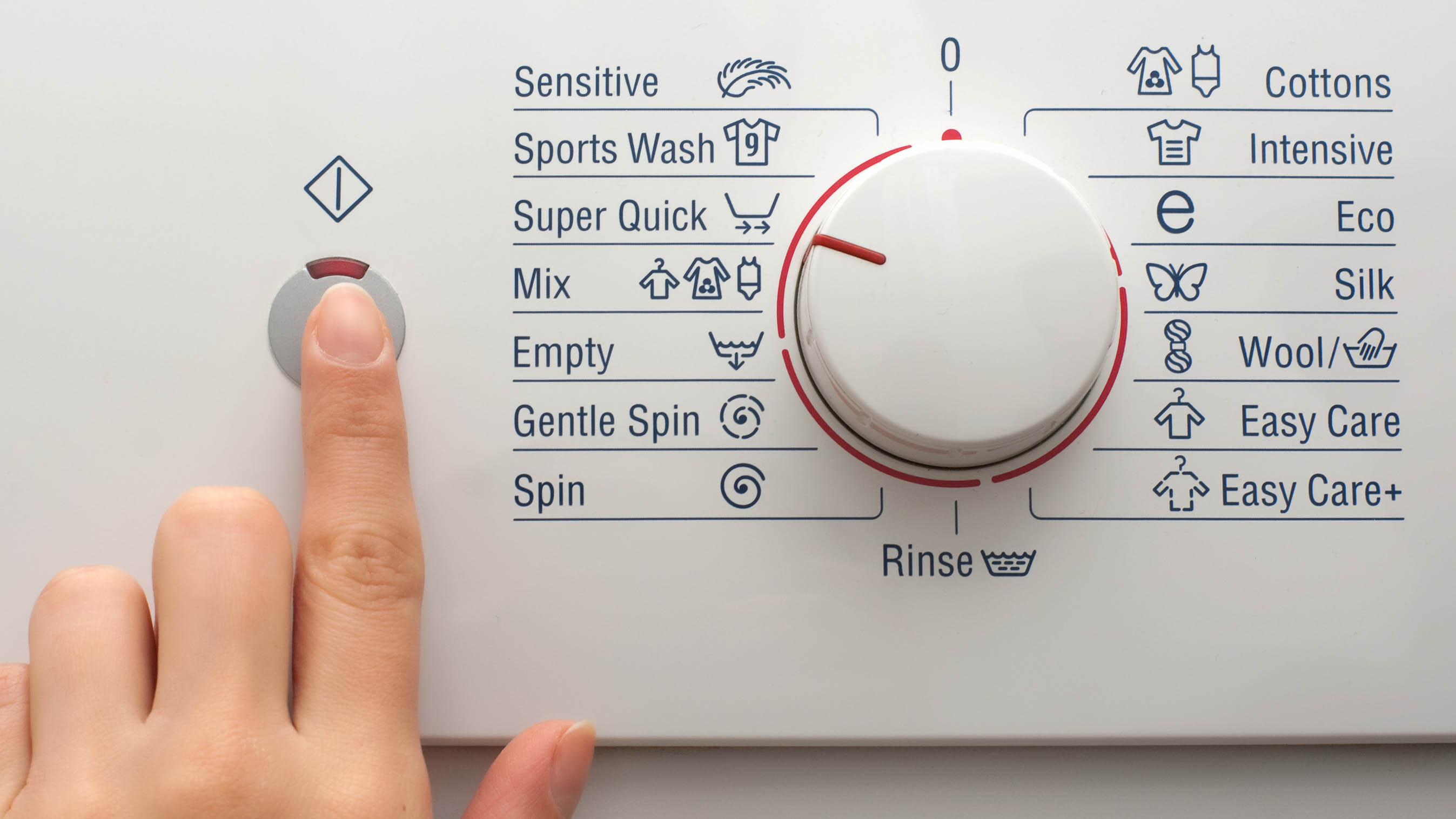
Of course, you will want to make sure that your washing machine comes with enough settings and cycles. While an abundance of settings gives you more versatility, make sure you only get what you need — too many settings can clutter the control panel and will likely end up unused anyway.
Look out for steam options if you care about sanitization. Extra rinse programs are useful if you have sensitive skin as well. Quick wash settings are equally important too. The shorter the setting, the more quickly you can rinse a load in a hurry, but bear in mind there’s a time when you should and shouldn’t use the quick wash setting. Eco settings are still rare, but they're increasing in popularity if you want to save on electricity and water consumption, although these take longer to run than standard cycles. Ever wondered why is this energy-saving setting missing from U.S. washing machines? We've found ways to replicate it.
7. Auto dispense
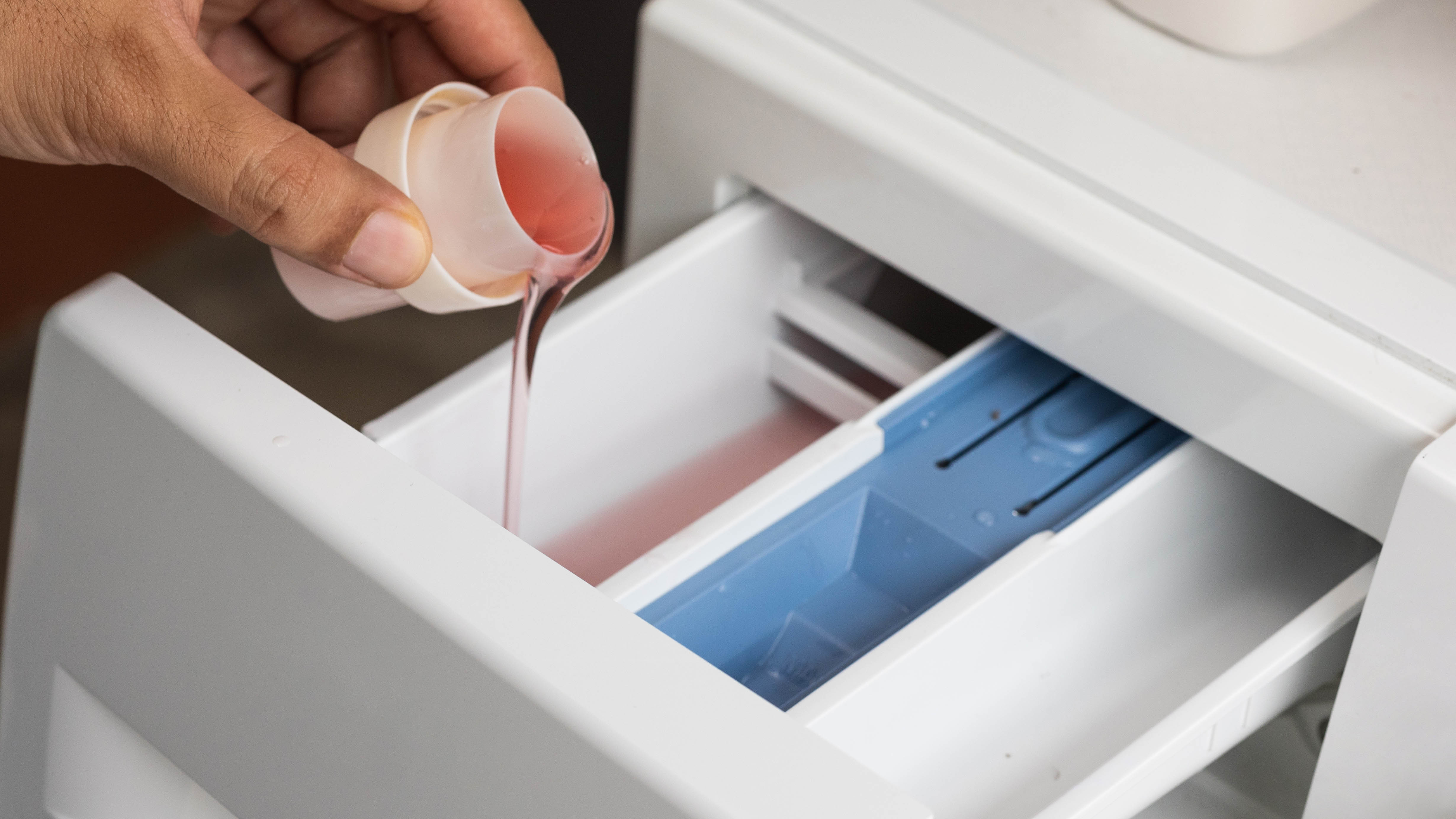
If you hate carefully measuring out your detergent with each wash, this is a feature you’ll want. Some washing machines come with auto dose capabilities, which means it can calculate the amount of detergent required based on load size and soiling levels. It then takes what it needs from its stockpile.
The same function exists for softener as well, so you can effectively run several cycles without having to touch a bottle. This stops the habit of overusing detergent, which is tricky to fully rinse out and results in more expense.
If you're new to washing machines, here’s what those compartments actually do in your washing machine drawer.
8. Smart features
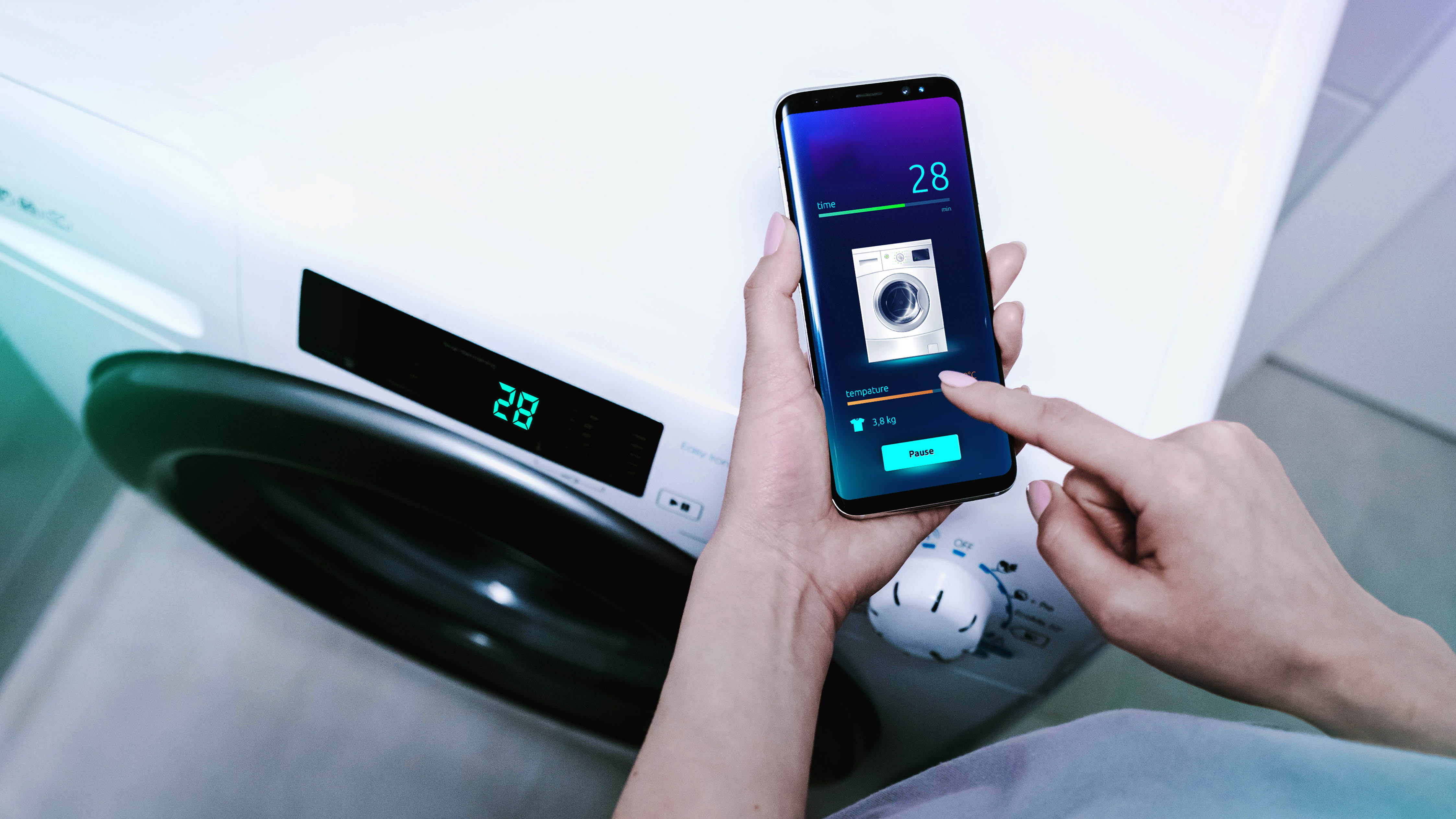
If you love to have the latest tech, you’re going to want a washing machine with smart connectivity. This means the washing machine can join your smart home regime. It can pair with your smartphone, on which you can monitor and control the appliance.
All sorts of features are available depending on the brand and app you use, but some will let you remote start the machine, download additional cycles, or even self-diagnose any faults. You can also monitor the energy consumption on some apps.
9. Stackable
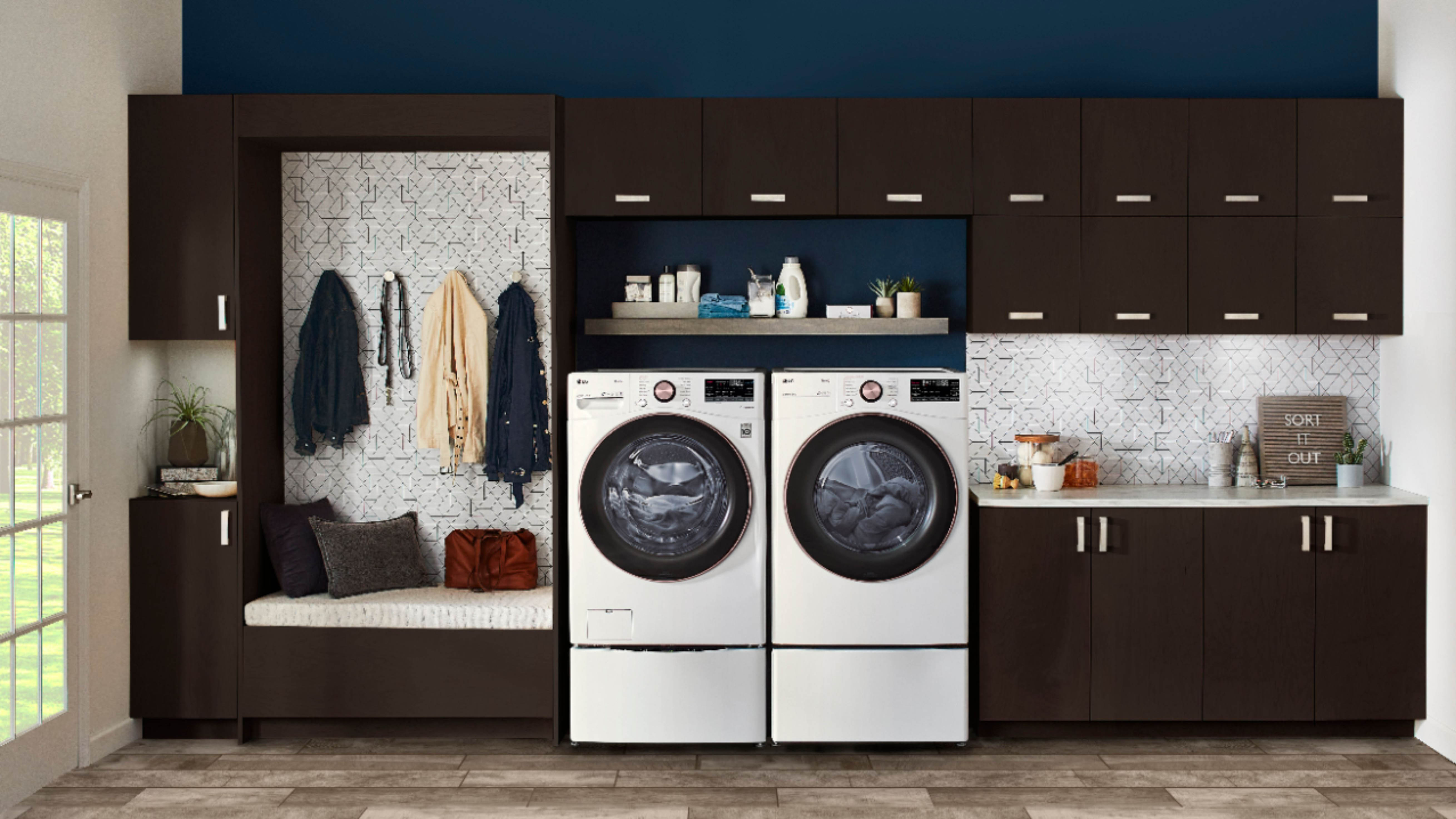
If you’re set on buying a front load washing machine and you’re tight for space, be sure to check if it’s stackable. A stackable design means you can literally stack your washer and dryer to save on space. You would need to purchase a stacking kit as well as the adjoining model of clothes dryer, but this can be a great way to free up space in your laundry room.
Some models can even communicate with one another, so you can control both machines with the most convenient control panel. Other models can be stacked with pedestals for added capacity as well.
10. Size and dimensions
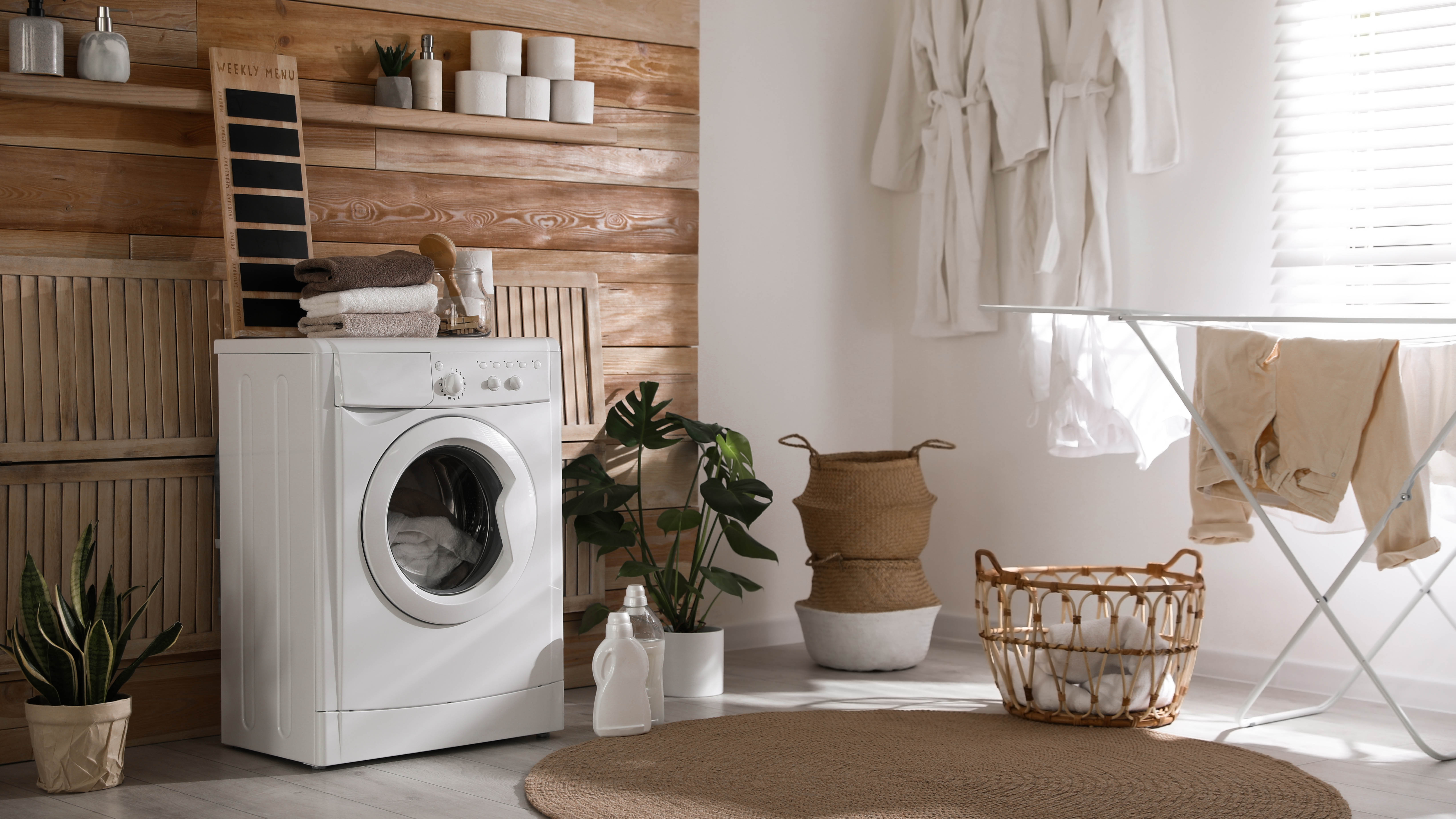
Most washing machines are a similar size, but the dimensions can vary slightly depending on the model. If you’re fitting your washing machine into a restricted space, make sure you pick one that’s an adequate size with space to vent. Having space around your washing machine can minimize noise as well.
You should also consider whether you will have enough room above or in front of the machine to fully open the door. The last thing you want is a shelf blocking you from loading the laundry.
11. Reviews

Always take a look at any online reviews before you choose a washing machine. This can give you some indication of the washing performance on stains as well as the consistency and reliability of the machine. Look out for any recurring faults or issues and consider if they would pose a problem for you.
Take a look at our guide on the best washing machines if you want some assistance. We’ve balanced the specs and features with online reviews to find the best model for every circumstance.
For more washing tips, tricks, and how-tos, check out our guides on best clothes dryers, when you should and shouldn't use the quick wash setting and what do laundry symbols mean?

Katie Mortram used to be a Homes Editor for Tom's Guide, where she oversaw everything from kitchen appliances to gardening tools, as well as smart home tech. Specializing in providing expert advice for cleaning and home manintenance, she now works as Household Advice Editor for Good Housekeeping.
